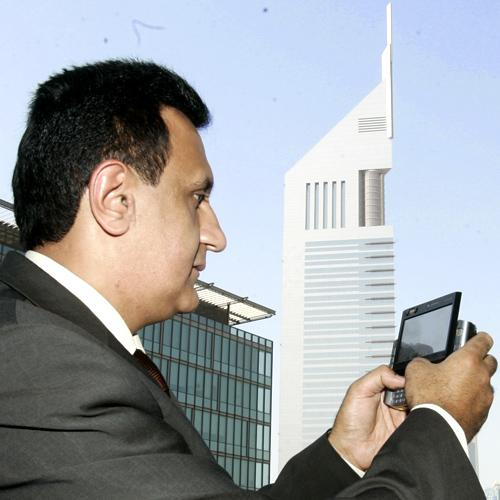
Do you find yourself waking up at 3am to check your email or Facebook account? Is your addiction to the internet having a negative effect on your relationships? Do you experience withdrawal symptoms when not on-line?
If so, then you are probably experiencing technology addiction. This occurs when people cross an invisible boundary and their texting, emailing, Twitter and Facebook usage becomes unhealthy.
Last week, I was interested to read a research study carried out by the Henley School of Business which showed that it was not the young or unemployed who had time on their hands who were technology addicted but, contrary to what I would have expected, it was in fact those who worked hardest who were most at risk.
Working excessively is the ‘strongest predictor’ of technology addiction.
Dr. Cristina Quinones-Garcia of Northampton Business School who co-wrote the study said: ‘Internet supports all areas of human interaction. However, the omnipresence of this phenomenon could have a double-edged sword impact on our lives’.
It would seem that individuals who use technology to enable them to continue working beyond office hours or to receive social media notifications 24/7 tend to be highly successful in their jobs but are at risk of the effects of technology overload.
Today, children not yet two years old are given iPads to keep them occupied, incessantly watch TV or play video games while we adults have a compulsive need to check our Facebook account before going to sleep. Does it matter? Is it harmful? Should you carry out a self-audit of time spent online versus time spent with family?
It takes strong discipline not to look at your phone or iPad just to check if there were any replies to your latest ‘tweet’ that informed the world of your opinion of the movie you watched last night.
A recent poll found that British workers would rather have no heat or water than lose their internet connection at home. Now that is an extraordinary insight into how personal priorities have changed for many of us. The problem is that we now tend to assume and accept that technology controls our lives when, in reality, it needs to be the other way around.
So, it is important to take a step back and examine our personal behaviour in terms of online usage versus personal interaction. Which is more important and which demands more of our time? If the answer is technology, then there may be a problem.
Be mindful of the amount of time you use social media and your compulsive desire to overload on it. Take up a physical activity that doesn’t involve the internet, online games, TV, cellphones or computers. Get involved in the community; play a music instrument, learn to dance or sing. Go for a run with a friend and engage in regular exercise.
Maybe designate one day a week as ‘technology-free’ whereby all online use is banned for 24 hours. Does that sound impossible? If so, maybe you need two days a week being internet-free.
Make time to see your friends: Easy to say that you have no time but in reality you may just be making an excuse so as to post another blog. Avoid coffee shops that have free internet access.
Plan family events: Put specific time into the diary for eating together as a family with some group activity afterwards. Don’t watch TV and eat dinner.
Limit your time: Allocate the time you are going to spend on your iPad or phone and make sure you stop yourself when your time is up. Remember, if you let technology control your life 24/7, you will become a really uninteresting personality — a blank sheet of paper upon which little is written of any value or remains for longer than a minute.
The internet can enrich our lives in many ways and we are fortunate to live in an era when we are able to reach out to the other side of the world in an instant.
But we should not forget about taking part in sport, playing with our children, having coffee with friends or going out for a picnic. Interpersonal relationships, face to face, are vital for enhancing our lives and for keeping us grounded.
Key points
* Technology addiction is insidious.
* Ensure you control your electronics, not vice-versa.
* Limit children’s ‘screen time’ to an acceptable level.
— The author is a BBC Guest-Broadcaster and Motivational Speaker. She is CEO of an international Stress Management consultancy and her new book, ‘Show Stress Who’s Boss!’ is available in all good bookshops.












